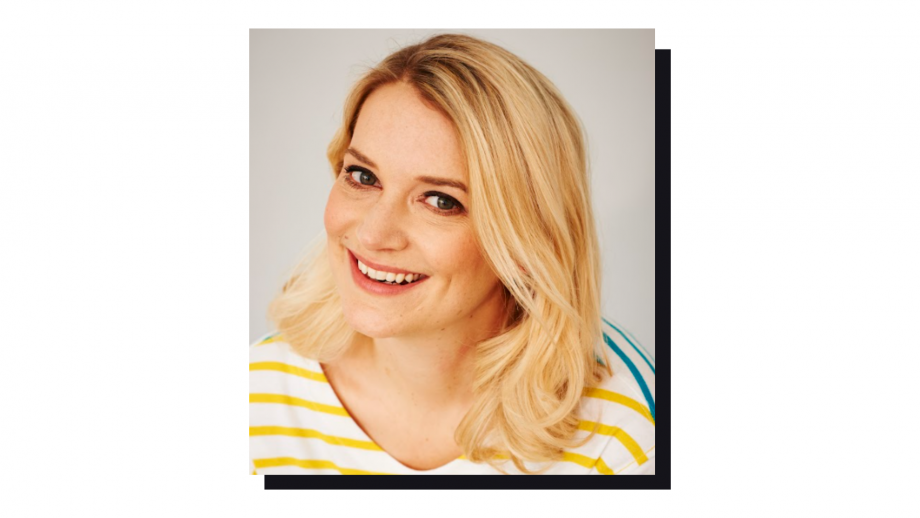Pescatarian diet: Everything you need to know about the pescatarian diet
A Pescatarian diet is a red and white meat-free diet, that includes fish recipes and seafood


Parenting advice, hot topics, best buys and family finance tips delivered straight to your inbox.
You are now subscribed
Your newsletter sign-up was successful
The Pescatarian diet is on the upswing as more and more of us turn to a diet free from meat, eggs and other animal products.
Tempted to follow a Pescatarian diet? A Pescatarian diet is a red and white meat-free diet, that includes fish recipes and seafood – as well as plenty of fruit and vegetables. Research suggests eating less meat is better for your health and can help you live longer. Avoiding red meat also has added environmental benefits, so more people than ever are limiting their meat intake and opting for the Pescatarian or even a vegan diet.
“A Pescatarian diet is a diet which excludes meat and poultry but includes plant foods, fish and seafood, dairy and eggs,” says nutritionist Jenna Hope. New figures by Mintel suggest 16 per cent of Brits currently follow a Pescatarian diet, making it more popular right now than being vegan.
“Consumers are introducing more variation into their diet, with many opting to add fish into their lifestyles as consuming certain fish can add protein and keep saturated fat intake down,” says leading TV nutritionist Lily Soutter, an ambassador for Princes. “Eating certain oily fish, such as mackerel and salmon, provides the body with increased omega 3 fatty acids. Omega 3 helps the heart to function effectively and swapping red meat for fish can help to reduce your saturated fat intake. This has a knock-on effect of helping to keep your blood cholesterol at a normal level.”
The word ‘pescatarian’ is a mix of the Italian word ‘pesce’ meaning fish, and the word vegetarianism. So, a Pescatarian diet includes lots of vegetarian recipes, but with the addition of fish. It is also very similar to the Mediterranean diet.
Why a Pescatarian diet is better for the environment
“Reducing meat consumption has been shown to have a beneficial environmental impact,” says Jenna. In fact, findings from an EAT Lancet study found foods that harm our health are also those that most harm the planet.
The most damaging food of all is red meat, like beef and lamb. For us, eating too much red meat can increase your risk of serious illnesses, like cancer, heart disease and stroke, and when it comes to our environment the figures are alarming. The study found, for example, that producing just 100g of beef results in 105kg of greenhouse gases – those emissions that are responsible for the greenhouse effect which has led to global warming. That’s almost as many greenhouse gases as flying from London to Paris would produce.
“In order to optimise environmental impact it’s recommended to switch animal-based foods for plant food sources,” says Jenna. “The Pescatarian diet may be slightly more beneficial for animal welfare although it still encompasses dairy and animal-based products. Therefore, individuals with an ethical concern should generate their own views.”
Parenting advice, hot topics, best buys and family finance tips delivered straight to your inbox.
What can you eat on the Pescatarian diet?
Pescatarian’s can eat any kind of fish or seafood, including salmon, tuna, prawns, and lobster. “You can also consume food derived from plants, dairy and eggs,” says Jenna. “It just excludes meat and poultry foods.”
Canned foods also count when it comes to a Pescatarian diet. “If you’re looking to reduce your meat intake, canned fish is a simple and efficient way to help keep your protein levels up without having to spend hours preparing fish from the counter," says Lily. "It can also extremely cost effective when compared with some fresh fish.” Canned tuna, salmon, mackerel and sardines are the most commonly available choices.
Canned fish and vegetables will save you money, and you'll not miss out on any nutritional benefits. A Pescatarian’s diet usually includes plenty of vegetables, fruit, legumes, potatoes, rice, pasta, beans, pulses and nuts. Like vegetarians, Pescatarian’s also eat dairy and eggs, including cheese, yogurt and milk.
What are the benefits of a Pescatarian diet?
Following a Pescatarian diet has great health benefits. “But it’s dependant on the diet quality,” says Jenna. “A diet high in refined sugars and ultra-processed food could fit within the realms of a Pescatarian diet. Equally a diet rich in wholefoods, good quality fish, fruits, vegetables, nuts and seeds is also a Pescatarian dietary pattern. The latter would be associated with better general health.”
- Plant-based diets are good for anti-inflammation and reducing the risk of diabetes and obesity.
- People who eat more fish and less meat are likely to be protected against cancers affecting the colon and bowel.
- A Pescatarian diet is easier to follow compared to a vegetarian diet, as you can be sure you will be consuming enough protein.
- People who consume fish also have lower blood pressure and better circulation, as well as fewer heart problems.
- Consuming fish, especially fatty fish, such as Albacore tuna, wild salmon, mussels and anchovies, increases your intake of omega-3 fatty acid. Fatty fish is an essential food to eat during pregnancy, as they're great for improving eye health, fighting depression, and promoting brain health.
A Pescatarian diet can also help you sleep. A nationwide survey by Sealy UK set out to identify the link between food type and sleep quality. Out of all the most-popular diets right now, the Pescatarian diet came third. “Dietary factors such as omega-3 fats found predominantly in oily fish are believed to be related to melatonin and there is some, albeit limited, scientific evidence in children showing a positive link,” says registered nutritionist Dr Tom Hill.
What are the cons of a Pescatarian diet?
You’ll be pleased to know, there are hardly any drawbacks to the Pescatarian diet.
However, fish does contain high levels of mercury, and for this reason pregnant women, breast-feeding women, and women planning to conceive should limit their intake. Plus, high levels of mercury can have a negative effect on our nervous systems. Fish to avoid with high levels of mercury including king mackerel, swordfish, shark and tuna.
The NHS advises consuming three to four portions of fish a week, the rest of the week you could opt for vegetarian meals. Like all diets, it is important to ensure you are receiving the right nutrients. The lack of red meat from your diet may mean you could lose sources of iron, therefore be sure to include vegetables and beans in your diet that are high in iron, such as kidney beans, spinach and broccoli.
“The diet has to be suitable for the individuals,’ says Jenna. “Some people may find it causes social challenges of eating out and going to friends for dinner. Other people may enjoy the taste of meat and poultry and consequently cutting it out may be unsustainable. From a health perspective it is possible to obtain adequate nutrition on a wholefood Pescatarian diet.”
If you are worried about the changes you are making to your diet it is good to contact your GP beforehand.
Best pescatarian cookbooks
The Flexible Pescatarian by Jo Pratt
Best for: Quick and simple recipes
Why we rate it: Not only are the recipes easy to follow, but they look so delicious even hardcore meat eaters will be tempted.
£13, Amazon
The Truly Healthy Pescatarian Cookbook by Nicole Hallissey
Best for: Losing weight
Why we rate it: Written by a registered dietitian nutritionist, these dishes taste great and will fill you up.
£15.49 Amazon
The Easy 5-Ingredient Pescatarian Cookbook by Andy DeSantis
Best for: Saving money
Why we rate it: With just five or so main ingredients per recipe, you won’t be left with random ingredients to use up afterwards.
£13.17, Amazon

Faye M Smith is a Senior Health And Lifestyle writer working across Woman & Home, Feel Good You, Woman’s Own and Woman magazine. Having gained an NCTJ postgraduate diploma, Faye has worked for 15 years in journalism, covering a range of lifestyle topics for companies including the BBC, Press Association, News UK and Hachette.